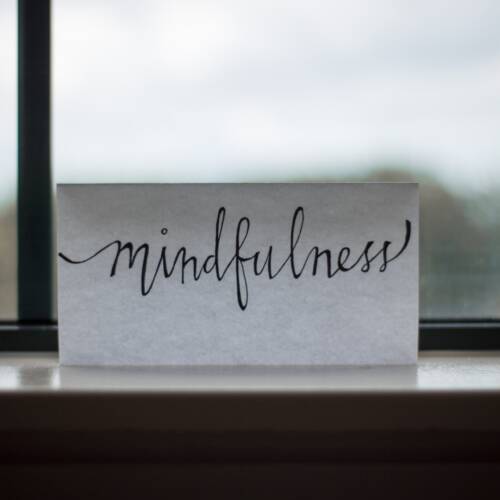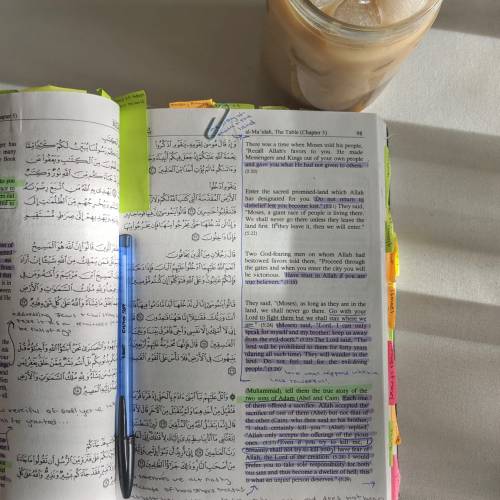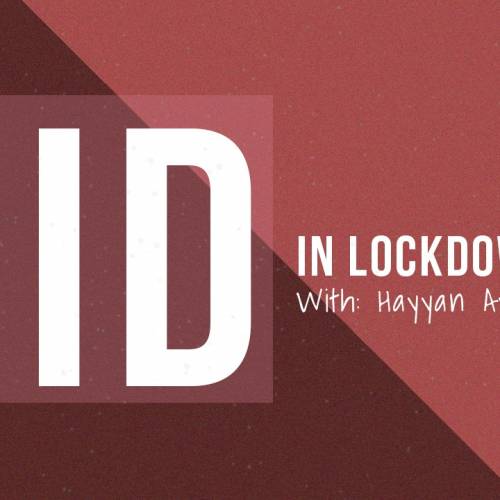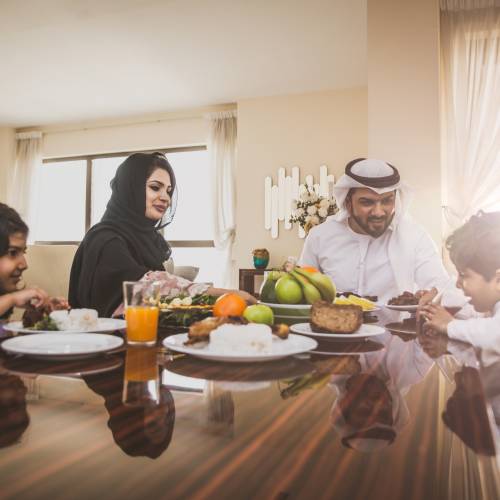
15 Holistic Tips To Make The Most of The Month of Mercy
24 Apr 2020Every year during Ramadan, we are given the opportunity to re-evaluate and review the impact our actions have had on our own lives, other people and the planet at large. Ramadan is not only a month of fasting, but it is also a time to reset; a chance to physically, mentally and spiritually cleanse and rejuvenate.
During this time of introspection, we are forced to slow down, disengage from our autopilot mode, and become more present and mindful throughout our daily lives. This blessed month creates the space for us to look inwards and reorganise our interior.
There are a plethora of posts discussing healthy Ramadan habits and tips across the internet. However, this article will lay out a holistic approach for you to navigate the holy month of Ramadan.
So here are 15 tips on how to take care of your body, mind and soul during this month:
1. Sit down and set your intention for the month
Write your Ramadan intentions at the start of the month. Intentions written down at the beginning of the lunar month sets you up for a new and fresh beginning. This intention can include new spiritual, psychological and/or physical goals that you’d like to attain. I would suggest keeping it written on a note-pad on your bed side, or hanging it up on your wall to help keep you focused and motivated each day.
2. Set a theme for the month
For example, if your child is finally old enough to understand what Ramadan is, and you really want to make an impact on them, plan a celebratory theme. Decorate the living room, build a cardboard mosque with them, etc. Maybe this Ramadan is all about being more present and living in the moment. Set the theme, write down your intentions and plan your routines accordingly.
3. Try not to overeat during Iftar
We all know how easier said than done this one is. Still, overeating can make you feel physically and mentally sluggish. Small, frequent meals are recommended to stay and feel active and fresh. Don’t forget to have plenty of fruits and vegetables.
4. Drink plenty of water
We are all prone to getting dehydrated during this month. Set a fluid intake target e.g. 2 liters of water daily after iftar and stick to it. Dehydration can increase your fatigue during the day and make it much harder to fast, let alone function while fasting.
5. Maintain a healthy sleeping routine
It is quite common to easily slip out of our regular sleeping schedule during Ramadan. Sleep-deprivation can take away from our ability to make the most out of this month. In addition, it can have detrimental effects on both the body and psyche. While it is absolutely natural for our body to delay sleep during Ramadan, since we break fast late in the evening, it is still essential to maintain a good sleep routine.
6. Unplug and declutter
Notice and eliminate unnecessary distractions or unhealthy behaviours like excessive social media time, binge online shopping, excessive screen time, etc. A possible theme to adopt during this month can be to try and adopt an attitude of minimalism. So why not declutter your phone, room and/or your wardrobe. Be sure to donate whatever can be useful for others, such as functional gadgets, or clothes you no longer fit into, etc.
7. Seek to connect with the community
In the current situation, this may be difficult. But maybe have an iftar over video call with that friend who you know is social distancing alone at home, or even organise an iftar gathering via zoom with your extended family and relatives.
8. Take up a new habit or hobby
Ramadan is a great time to start a new habit or hobby. Set a goal to introduce something new to your routine and keep doing it long after the month is over. (For example, daily devotional reading, or bullet journaling). You can even decide to stop certain unwanted habits like eliminating sugar from your diet, or stopping fizzy drinks or cutting out some toxic people from your circle.
9. Create some room for introspection
Take time daily to reflect and re-align your intentions. Count your blessings and make a list of them. Notice the quality of your thoughts and write them down in your journal. This will give you a clearer picture of your priorities and will help you stay in unison from inside out.
10. Reflect on and apply some Islamic teachings, such as cutting down waste
“Eat and drink but waste not by excess, for Allah loves not those who waste,” (Qur’an, 7:31). Avoid food waste in Ramadan by planning meals in advance, consuming moderately and reusing leftovers.
11. Notice your emotional state and patterns
Some people can experience some form of irritability or emotional discomfort during the first days of Ramadan. That is mainly because in the absence of food and other distractions, our suppressed emotions and thoughts tend to surface, and we are forced to sit with them. Notice your reactions, get curious about your feelings, acknowledge them and take ownership. Ramadan is the opportunity to spring clean your mind and heart.
12. Forgive yourself, forgive others and heal
After acknowledging and taking ownership of our emotions, as suggested above, it is quite common to come to the realisation that this life is futile and fleeting. So be compassionate with yourself and others. Let go of toxic feelings and grudges. Notice where you are hardest on yourself and allow yourself to heal.
13. Spice up your Quaranti- I mean… Qur’an-time
Make your devotional reading a part of your daily routine. Create a relaxing environment for that time, for example, you can diffuse essential oils while reading, or read outdoors in the garden. This helps you be more present and helps you associate your Qur’an time with a relaxing, and positive vibe. Take it a step further, and take notes or write down your favourite ayahs to strengthen your relationship with the holy book.
14. Donate and give back!
Throughout Ramadan, there is a huge emphasis on giving back and thinking of those in need. Identify a charity or a cause that you’d like to support and donate what is within your capacity. Set a donation box at home for the whole family to contribute to. That is especially important if you have children, as it will get them involved and accustomed to thinking outside of themselves and their needs.
15. Plan ahead for the Nights of Power (Qadr)
The Nights of Power (Qadr) are a once in a year opportunity to connect with the divine on both a personal and collective level. It’s important to plan these days in advance, especially if you’re working. This year, most of us will be at home, and will therefore have the opportunity to stay awake for longer at night and make the most of it, while utilising the day to rest and take it easy.
Ramadan is not just a month in the Islamic calendar where people abstain from food during the day and feast at night. It is a unique collective experience. A chance to use fasting as a medicine for your body, and as food for your mind and soul to achieve greater connection with your higher self and the Creator.
Ramadan Mubarak to you and your families!















